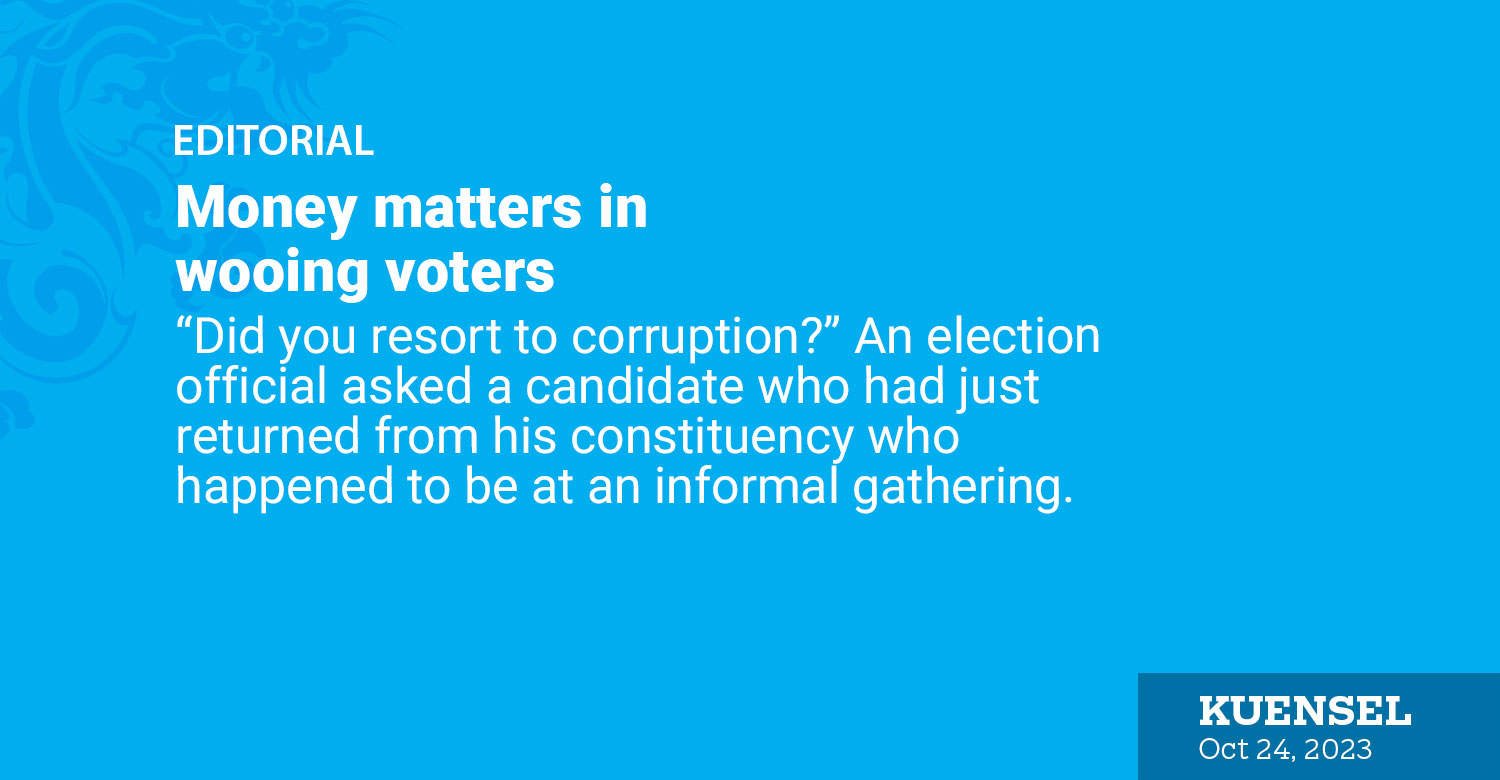“Did you resort to corruption?” An election official asked a candidate who had just returned from his constituency who happened to be at an informal gathering.
“Yes Sir. But not as much as the others.” The answer was witty. Everybody laughed and the lunch at the rimdo continued. The official campaign period has not yet started, but candidates have been touring constituencies wooing voters and seeking support. With five political parties in the fray, candidates have to do their best to ensure the time and resources spent are worth it.
Best, when trying to win an election, means keeping voters, party workers and those influential in the villages happy. Happiness can be ensured not by ideologies, plans or pledges. How much a candidate spends is still the main factor in listening to candidates, some of whom are complaining about the financial burden. And it is an open secret. Money has to be spent to entertain and keep the entourage of party workers, and villagers happy whether they will vote or not, offering tshogchangs.
Elections can be expensive – both for those conducting it and those taking part in it. Some new faces in the fray are surprised by the obligations. There are no sponsors nor is it allowed. Candidates, as they traverse from village to village are seeing how financially difficult it is. In a social media group of old classmates encouraging a classmate, members are suggesting crowdfunding as their old friend is running out of money even before the official campaign begins.
Meanwhile, it is an open secret that candidates have to pay and are already paying their party workers, and supporters and give “soelras” to thousands of voters who turn out to listen to them with “expectations”. They are paying to the extent they are questioning their decisions, if not with big regrets.
Political activities will intensify from now till the general round. Money will play a significant role, if not the most important, as eligible voters are tired of seeing candidates or their representatives at their doorstep one after another. Political parties are gauging their chances by the foot soldiers they have on the ground.
We have stringent election rules to ensure what is called free and fair elections. The ground reality is far removed from what is in the rule books. As a small country with a very close-knit society, not many are reported or complained to authorities. Quite often it is because everybody is doing it or it is seen as the only way out when rules deprive them of going all out like in other democracies.
The next elected government should not be decided by which political parties or candidates have the most resources. But it is easier said than done. Money matters in elections. It is no different in Bhutan even if we have the best regulations or policies.


